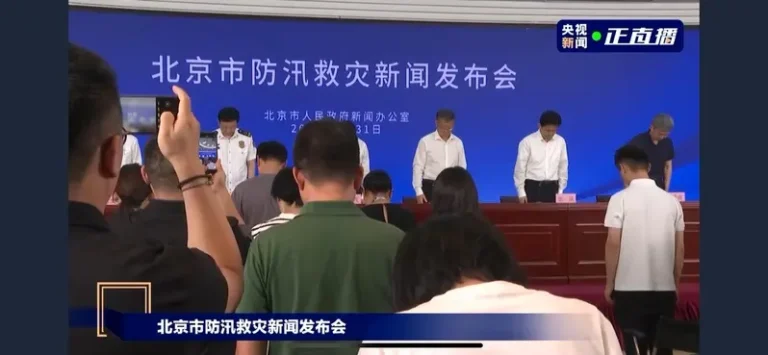
Management team replacement, voluntary resignation, closure of multiple branch production lines… In the more than one year since Zong Qinghou’s death, it has not been easy for Zong Fuli to sit on the position of Wahaha Chairman.
On July 13, three parties who claimed to be Zong Qinghou’s illegitimate children, namely Jackey Zong, Jessie Zong and Jerry Zong, filed lawsuits in Hong Kong and Hangzhou courts, demanding the division of the $2.1 billion trust assets promised by Zong Qinghou and 29.4% of the shares of Wahaha Group (valued at more than 20 billion yuan).
In fact, rumors about “illegitimate children” have been circulating in Hangzhou for many years, but no one has ever appeared. Until today, the balance of interests has been shaken, and this 10 billion inheritance dispute has been exposed to the public.
The woman behind Zong Qinghou
From a legal perspective, the three “Zong children” want to divide the inheritance with Zong Fuli, there is a factual premise: to prove the parent-child relationship with Zong Qinghou.
According to Chen Tao, senior equity partner of Beijing Deheheng Law Firm, Article 1084 of the Civil Code stipulates that illegitimate children enjoy the same rights as legitimate children and can also inherit the estate of their biological parents, but they need to prove their blood relationship through the parent-child relationship confirmation procedure and follow the statutory inheritance rules to assert their rights.
At present, according to the latest news of the case, the three have applied to the court to retrieve Zong Qinghou’s blood samples before his death for DNA identification, and the results of the identification are expected to be announced as early as September this year.
In addition to the three illegitimate children who appeared in the public eye for the first time, the center of this inheritance battle controversy has always been around a key figure-Du Jianying. She is 21 years younger than Zong Qinghou, was once a senior executive of Wahaha, and was identified as the biological mother of the three illegitimate children.
Du Jianying joined Wahaha very early and was deeply involved in the rise and development of Wahaha. She was once considered the “second in command” of the company. In 1991, she joined the Hangzhou Wahaha Nutrition Food Factory (the predecessor of Wahaha Group) and served as the director of the general manager’s office and the secretary of the group’s party committee, in charge of international business and offshore company operations, foreign investment, information management and party building.
Since Wahaha has not had a vice president for a long time, Du Jianying, as the head of the general manager’s office, directly coordinates Zong Qinghou and various departments. She can be said to be the “number two person” besides Zong Qinghou.
In 2008, although she withdrew from the group’s board of directors in the name of personal planning, she continued to control the equity of many subsidiaries such as Shaanxi Dairy and Shenyang Rongtai through overseas companies such as Hong Kong Rongtai.
After leaving Wahaha, Du Jianying founded Sanjie Investment Group in 2011 and began to invest in industries such as biomedicine, new energy, new materials, and education. The equity structure shows that the company has two shareholders, of which Du Jianying holds 99.8% of the shares and is undoubtedly the actual controller of the company. Interestingly, there is also a shareholder named “Zong Rui”. And public information shows that Zong Rui is the biological sister that Zong Qinghou gave up for adoption in his childhood.
On the other side of the inheritance war, Zong Fuli officially took over as the chairman of Wahaha in August 2024, and then began drastic reforms and implemented a large-scale factory closure action that caused internal shocks in the company.
Since the beginning of 2025, Wahaha has successively closed 18 branches such as Shenyang Rongtai and Dali Beverage, and even handed over its products to external companies for OEM. This move was regarded as a “mysterious operation” at the time, and it also triggered fierce rights protection by some employees.
In this regard, Wahaha’s official explanation is that “in order to enhance the responsiveness of the terminal market, it is necessary to adjust and optimize the production and sales layout structure.”
From the common point of view, these closed factories are “non-Hongsheng system”, and Hongsheng system is the enterprise system actually controlled by Zong Fuli. At the same time as closing the factory, Hongsheng system added 30 production lines in Tianjin, Chengdu and other places, and took over the dealer channels in 12 provinces.
List of 11 closed factories (based on public reports and wind data)
Hexun Business found out based on public data that the 11 factories that can be confirmed to be closed are all related to Du Jianying. Among them, Zong Jichang served as a director of several branch companies in Dali, Shuangcheng, Nanjing, Shenyang, Tianjin, etc., and Zong Jieli served as a director of Shenyang Wahaha Rongtai Food Co., Ltd.
Although the identity of the three has not been confirmed by law, public data has clearly shown that Zong Jichang and Zong Jieli hold important positions in the Wahaha system and are deeply bound to Du Jianying, serving as directors of many companies together, which is by no means something that ordinary executives can achieve.
80% of private enterprises will usher in a “handover period”
According to Bloomberg, the three plaintiffs Zong Jichang, Zong Jieli and Zong Jisheng hold American citizenship and are all adults. They mainly initiated lawsuits on the two lines of inheritance trust and equity inheritance.
In the Hong Kong court, they demanded an equal division of the $2.1 billion offshore trust assets (each person claimed $700 million), and applied to freeze the $1.8 billion funds in HSBC under Zong Fuli’s name to prevent her from further disposing of the account funds; in the Hangzhou court, they demanded the division of 29.4% of the shares of Wahaha Group (valued at over 20 billion yuan), submitted the 1989 birth certificate of Zong Jichang and other blood relationship evidence, and cited Article 1071 of the Civil Code to demand equal inheritance rights.
Whether it is Zong Fuli or the three illegitimate children, in order to realize their demands, in addition to the exact relationship between the children, a valid will certificate is also crucial. At present, both parties have produced their own will certificates. So, whose certificate is more recognized by the law?
The defendant Zong Fuli presented a notarized will signed in 2020, which stated that “the overseas assets will be inherited by the only daughter”, and three Wahaha executives witnessed the signature, but no family members were present.
Chen Tao said that if the witnesses of the will are all senior executives of Wahaha, there will be a “conflict of interest in the identity of witnesses”, which may affect the validity of the will. He further explained that according to Article 24 of the “Interpretation of the Supreme People’s Court on the Application of the Inheritance Code (I)”, the creditors, debtors, and partners of the heirs and legatees should also be regarded as having a vested interest in the heirs and legatees and cannot serve as witnesses to the will.
The three illegitimate children submitted the “Confirmation of the Rights and Interests of Illegitimate Children” notarized in 2018. Although the confirmation was signed by Zong Qinghou, it did not specify the details of asset distribution. In addition, the three claimed that Zong Qinghou had promised to set up a $2.1 billion offshore trust, and submitted trust documents, recorded promises, assistant testimony and other evidence.
Chen Tao believes that according to the evidence submitted by the plaintiff, Zong Qinghou only “instructed the financial team to set up a trust” (without a power of attorney) and “verbally promised each person US$700 million” (without a beneficiary clause), and the key links were not formed into written documents, which may violate Article 5 of the Hong Kong Trust Law, which stipulates that “an express trust must be established in writing or by action”. The specific situation still needs to be determined by the Hong Kong court based on evidence.
With the advancement of more than 40 years of reform and opening up, China’s first generation of entrepreneurs have gradually entered the handover period, and a large number of family businesses are facing the key challenges of “successor” training and wealth inheritance. According to data from the China Private Economy Research Association, more than 80% of China’s private enterprises are family businesses, which indicates that private enterprises may usher in a concentrated “handover wave” in the next few years.
Among wealth inheritance tools, family trusts are favored by family businesses because they can effectively isolate corporate debts and family assets and protect family life from the impact of operating risks.
However, Chen Tao pointed out that family trusts are not a “once and for all” solution. “The family’s internal and external environment, identity demands, trust needs, and even the global legal environment and the status of participants continue to change. Whether family trusts can continue to achieve family goals in compliance requires dynamic evaluation.” He emphasized that entrepreneurs must realize that family trusts are only the top-level architecture of the wealth management system, and must be coordinated and integrated with will arrangements, family agreements, other financial instruments, structural instruments, and identity planning to build a systematic solution.
Wahaha’s performance peaked in 2013, with revenue of 78.279 billion yuan that year, setting a record in China’s beverage industry, which has not been surpassed so far. In the following ten years, its performance experienced a significant decline, and it did not rebound strongly until 2024.
This family infighting will undoubtedly consume the vitality of the company. According to market news, three provincial agents have suspended purchases due to concerns that changes in equity will affect the stability of supply.
Wahaha’s inheritance dispute involves key issues such as the inheritance rights of illegitimate children, the effectiveness of cross-border trusts, and disputes over corporate control, which will bring profound inspiration to the wealth inheritance of Chinese private enterprises.






